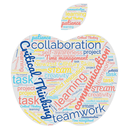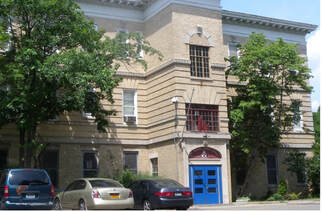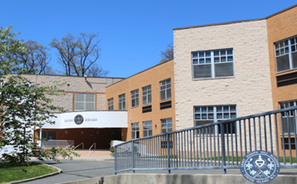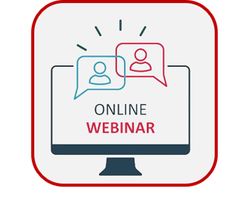|
Written by Dr. Roser Salavert and Stefanie Reda, Fordham PDRC  With a constantly changing learning environment, school leaders have experienced many changes in their schools. They have seen changes to their staff, student body, and the method in which content is delivered to their students both in and out of the classroom. These challenges require a cohesive and deep collaborative culture as well as a pedagogical approach that combines academic content and SEL. In response and throughout the school year, the Fordham PDRC in partnership with religious and independent school leaders has offered professional development opportunities that focused on two overarching themes: Project-Based Learning (PBL) and Backward Planning. Schools recognize that when teachers plan with the end in mind and engage students through PBL, all students can achieve high-level expectations in the 21st-century skills competencies. They include: “a) Collaboration, b) Self-Awareness c) Communication/Teamwork (globally), d) Patience, e) Critical Thinking, f) Creativity, g) Time Management and h) Conflict Resolution.” In-School Professional Development The Fordham PDRC team has collaborated with religious and independent schools in the Bronx, Queens and Staten Island in a joint effort to support educators in the planning and implementation of this approach in the classroom. We began by encouraging teachers to plan with the end in mind. Using Backward Design planning in conjunction with PBL allows students to have a set direction with the destination clearly mapped out. Tasks planned with PBL are focused on a big idea and the lessons engage the students through a vast design of activities.  In Queens, our host was The Theresa Paplin School, a special education school that serves students who need emotional as well as academic support. Teachers welcomed and worked with Dr. Carol Kennedy and Reginald Bennett, of Kennedy-Bennett Solutions, Jaclyn Sarnese with Elevated Classrooms, LLC, and members of the PDRC team in full-day sessions throughout the year, which focused on literacy and STEAM projects designed to promote academic learning through engagement, technology, and science projects. Through planning and collaborating in the sessions, educators have designed ways to continue their work using PBL in their classrooms and focus on social-emotional learning through content areas such as science, technology, music, and writing.  In the Bronx, our host was Cardinal Hayes High School. The school hosted four sessions facilitated by the PDRC team. The professional development focused on backward planning and differentiated instruction to promote effective classroom management. The idea of capturing students’ attention with a bell ringer activity, a mini lesson with practice, and a task for students leading up to a culminating project/assessment kept teachers planning with the end in mind. Educators shared with us at the follow-up sessions their new goals for their planning and how putting this new method into practice led them to even more success in their classrooms while giving students a voice. We wrapped up the series with a master lesson by Dr. Robert Parmach, who is the Director of Ignatian Mission Initiatives at Fordham University.  In Staten Island our host was Saint Joseph Hill Academy where teachers worked alongside Chris LInk, Educational Consultant on phenomenon-based learning (PhBL), also a learner-centered instructional approach that is based on student inquiry and problem-solving. In the classroom, teachers act as guides as learners explore and make sense of intriguing phenomena while using scientific practices in a social setting. By the end of the 4th session, teachers had a fleshed-out plan for implementing PhBL in their classrooms.  Online Webinars Teachers exchanged ideas for Project Based Learning online under the guidance of Panagiota Lilikaki, Assistant Principal at The Fantis School in Brooklyn. Her webinar, Decorating Eggs in Middle School English Class? Absolutely! Was designed to “help students explore how characterization, motif, and the setting foreshadow theme, they will be able to make a connection of the vocabulary and story elements through a hands-on approach. In an age of standardized assessments, the benefits of using projects in the classroom are plentiful -deeper understanding, cross-curricular connections, creativity, and purposeful learning -truly engaging all learners promotes equity and excellence.” Summer is around the corner, and the Fordham PDRC is currently supporting the Planning Meaningful Summer Tasks for Students, using a similar backward planning methodology which is highly encouraged even for tasks that are not guided within the classroom. Students will work on a series of tasks that allow them to design solutions and explanations to share with the class when they return to school in the fall. The process of completing tasks independently will lead up to a culminating project that will illustrate their solution to the big question. Their voice, opinions, and suggestions can be presented to an audience when they return, and it will have a meaningful purpose for them in their journey of learning. In our reflection about this academic year, we have realized how through project-based learning students can examine a big idea or question and work towards a solution, as well as the importance of its process. It is through their learning journey that students present their findings to an audience that their project gains authenticity. It is also through this process that they develop their students’ communication skills and strengthen their self-esteem. The audience can include professionals, teachers, and community members in addition to students from other classrooms. And it is the input of this audience that further motivates students to share their solutions. In summary, teachers who focus on PBL and use backward planning for their lessons guide all students towards building enduring understandings and solutions that are relatable and encourage students to apply them to other situations as well as content areas. For more information on how you can explore this in your school, stay tuned for on-demand videos illustrating the summary of this methodology. You can also reach out to the PDRC team to find out how a session can be led at your school.
0 Comments
Your comment will be posted after it is approved.
Leave a Reply. |
Archives
January 2024
Categories
All
|
